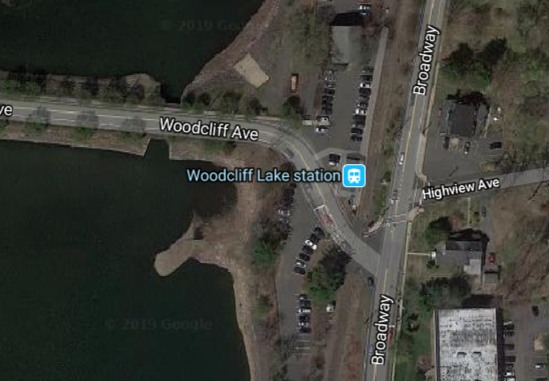
WOODCLIFF LAKE—An appeal has been filed to overturn the Zoning Board of Adjustment’s unanimous July vote rejecting 188 Broadway LLP’s plan to build a 53-unit apartment complex.
Plaintiff objects to the board’s determination that the application, filed in March, was essentially the same as one it already rejected.
During the application hearings, Paul Kaufman, a principal at 188 Broadway LLC, butted heads regularly with Zoning Board attorney Salvatore Princiotto.
An attorney for 188 Broadway LLC, Justin Santagata, of Kaufman, Semeraro, & Leibman LLP filed an amended complaint in federal court in September that alleges a taking of property without just compensation, violation of due process, and legal malpractice and demands a jury trial.
Plaintiff 188 Broadway LLC alleges that the board and its attorney did not consider its application based on the zoning “hardship” of office-space-only zoning on its property, changed market conditions and impacts on the office leasing market due to the Covid-19 pandemic.
A response by an attorney representing the borough’s insurance carrier, the Joint Insurance Fund, was due soon, borough officials said in October. We reached out to David Pfund, the JIF-assigned attorney representing Woodcliff Lake, but did not hear back by press time.
The applicant’s lawsuit demands relief including compensatory and consequential damages, including the fair market value of the property or an order that Woodcliff Lake rezone the property consistent with the application.
The suit further seeks an order declaring that Princiotto and board chair Robin Malley are barred from any further official role “in any further iteration of the application or a future one.”
And it seeks “all additional damages available in takings jurisprudence; punitive damages; attorneys’ fees and costs; and repayment of legal fees” paid to Princiotto by the board through Plaintiff’s escrow account.
The action says “the uncontradicted testimony on the application was that the office-only zoning for the property does not permit a reasonable return based on plaintiff’s investment-backed expectations and is a taking of property without just compensation.”
It says, “As established in the application, the North Jersey market in which the property is located has the highest office vacancy rate in New Jersey because large, non-campus-type office buildings are no longer economically viable.”
It says plaintiff “is not required to convert the building to a more multi-tenant space, at a loss, in order to determine whether any leasing is possible. Nor is plaintiff required to wait to see if the Covid-19 pandemic leads to lasting remote work — anathema to large, non-campus-type office buildings — prior to establishing a taking of property.”
The Zoning Board voted down the amended proposal solely based on res judicata, a legal principle meaning “the thing has been judged.”
The board, after counsel from Princiotto and four hearings, voted unanimously July 20 to declare the 53-unit application similar to a case it previously decided. (“Been there, done that: 53-unit pitch for 188 Broadway nixed,” Pascack Press, July 26, 2021.)
The applicant maintains the applications were not similar. Its suit quotes Borough Planner Richard Preiss as noting they were different, although Preiss also said he had not reviewed the 53-unit amended application.
The applicant proposing the 1 1⁄2 story high, two-building 53-unit rental complex had previously proposed a 60-unit, two-building, 2 story complex on the same site.
In its application for a 53-unit proposal, called its amended application, the applicant sought a so-called “hardship” use variance for the site based on the “inutility” of the existing land use zoning, which only permits commercial office space.
The suit claims the board did not hear the application to determine whether a hardship existed but rather, due to its attorney’s advice, focused on whether res judicata applied.
The 28-page lawsuit alleges four counts against the applicant’s denial, including a taking of property without just compensation; a violation of due process against the zoning board and Princiotto; legal malpractice against Marcus & Levy and Princiotto); and a complaint in lieu of prerogative writs against the board.
“The board’s denial of the application is legally unsustainable and arbitrary, capricious, and unreasonable under New Jersey law. The board’s determination of res judicata is based on legal gaslighting, purposeful misconstruction of testimony, incorrect legal direction from Princiotto, and — in the end— a lack of any recognition of the Covid-19 pandemic,” states the lawsuit.
It says the application is substantially different from its predecessor owing to the pandemic and further deterioration of the relevant office market, a 1-story reduction, a reduction in density, elimination of a height variance, and other architectural changes.
The lawsuit targets Princiotto’s role in the application’s rejection, saying that throughout plaintiff’s development application and the 2021 hearings, “the board’s attorney… acted not as a quasi-judicial officer as required by New Jersey law, but as an objector to the application and as an adversary.”
The appeal says the Zoning Board did not properly evaluate whether the existing zoning and testimony related to a changed office market due to Covid-19 caused a hardship.
It adds, “In a remarkable bit of hari-kari [sic], the board called a witness to testify to res judicata even though he repeatedly admitted he had not actually reviewed the current application. The entire application was poisoned by these macro and micro due process violations.”
Kaufman told Pascack Press on July 21, “We were hardly surprised by the vote, which was preordained and orchestrated by the board and its attorney, particularly after the board and its attorney would not permit us to question their witnesses, call any witnesses on this issue (including their own planner), accepted statements from [a] previous application taken out of context and prohibited us from submitting either the full statement or contrary statements.”
